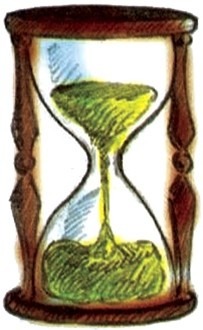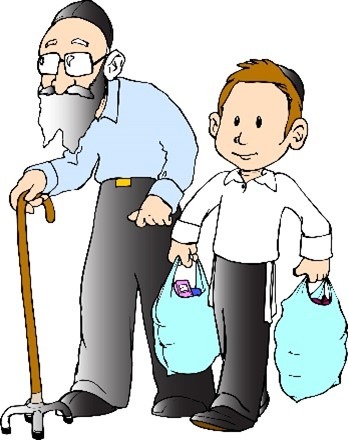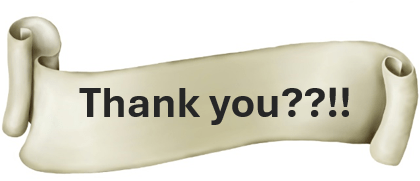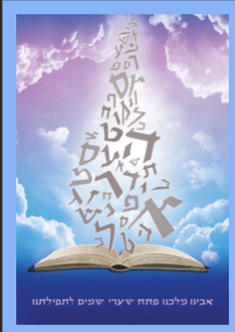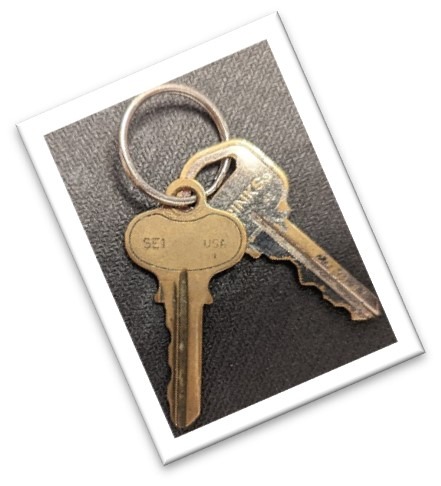Parshas Vayelech
Do It Now! Do Not Wait Until It’s Too Late!
“At all times your clothes should be white….” (Koheles 9:8)
Rav Saadia Gaon was traveling and stayed at an inn overnight. When Rav Saadia arrived at the inn, although the innkeeper did not recognize him, he treated him well. The innkeeper gave him a comfortable room and a tasty meal. When Rav Saadia was leaving the inn, another guest recognized him and greeted him with the utmost respect. Upon witnessing this, the owner of the inn was mortified. He apologized to Rav Saadia. He told him that had he known who he was, he would have treated him even better. Rav Saadia was puzzled. He informed the innkeeper that the service he had received was perfect and that nothing was lacking. The innkeeper replied, “Yes, but had I known that you are Rav Saadia Gaon, I would have given you super treatment!” Rav Saadia learned an important lesson from the innkeeper. He said, “Every single day I have a deeper appreciation of HaKadosh Baruch Hu. Therefore, every single day of my life I should do teshuva because yesterday I didn’t fully appreciate Hashem’s greatness.” In other words, based on his increased understanding of Hashem today, something had been lacking in yesterday’s service of Hashem. Therefore, he wanted to do teshuva daily.
The Talmud (Shabbos 30A) describes a conversation between King Dovid and Hashem. King Dovid wanted to know when he would die. Hashem withheld the specific date and the season that he would die. However, Hashem told him the day of the week that he would die. Hashem responded that He had decreed that knowing the specific day of death should always be kept secret. Why? Ben Yehoyada explains that if that information was known, a person might decide to sin his entire life and wait to do teshuva until right before he dies. But Hashem wants a person to constantly be doing teshuva.
Similarly, the Talmud (Shabbos 153A) quotes Rabbi Eliezer’s teaching that one should repent one day before his death. Rabbi Eliezer’s students asked him, “Does a person know the day on which he will die?” He said to them, “All the more so, this is a good piece of advice, and one should repent today lest he die tomorrow. By following this advice, one will spend his entire life in a state of repentance”. Similarly, King Shlomo said in Koheles (9:8), “At all times your clothes should be white….”, meaning that a person should always be prepared for his day of death.
Rabbi Yocḥanan ben Zakkai gave a parable for this. There was a king who invited his servants to a feast but did not set a time for them to come. The wise servants got dressed in their fine clothes and sat at the entrance to the king’s house. They said that the king could invite them at any moment. The foolish servants went to attend to their work saying, “Is there such thing as a feast without the toil of preparing for it? While the feast is being prepared, we will attend to other matters”. The king appeared suddenly and requested that his servants come to the feast. The wise ones entered dressed in their finest clothes, and the fools entered with their dirty clothes. The king was happy to greet the wise ones and angry to greet the fools. The king said, “These wise servants who dressed for the feast shall sit and eat and drink, but these fools who did not, shall stand and watch.” Rabbi Yochanan ben Zachai said that there is a similar outcome for people who think that their day of death and judgment is far away and do not prepare themselves for it.
Rabbeinu Yona (Sha’are Teshuva Perek 1) says that teshuva, repentance, is the greatest kindness that Hashem could give us. Hashem created us and does everything for us, yet we dare to sin against Hashem! By right, we deserve to be destroyed as soon as we sin. Instead, Hashem allows for teshuva. If done properly, teshuva can even cause our sins to be uprooted as if they had never been done!
Rabbeinu Yona (Yesodei Hateshuva) says that a person may want to repent from his sins yet be hesitant because of the embarrassment that he feels due to his terrible conduct. He may feel so burdened by his sins that he feels that doing teshuva is impossible for him.
Such a person should remember that Hashem loves us as a father loves his children. If a child does terrible, unimaginable acts yet returns home, wanting to improve, won’t his father welcome him with open arms!? Certainly, Hashem will lovingly welcome any sinner, even one who has done the worst sins!
Furthermore, Targum Yonasan on Eichah (2:19) and Rabbeinu Yona say that one must first psychologically forget his sins before he can feel regret and start doing teshuva. He must feel as if he was just born, free of sin. Then he will be relieved of his burden of guilt and will be able to start the teshuva process.
Focusing on Hashem’s great kindness is also a means to inspire us to do teshuva. Immediately after the plague of Hail, Paroah admitted his error for the first time. “Pharaoh sent, and called for Moshe and Aharon, and he said to them, “This time I have sinned. Hashem is the righteous One and I and my people are the sinners.” (Shmos 9:27) Why did Pharoah admit his sin at this time? Da’as Zekanim explains that Pharoah was inspired by Hashem’s kindness. Besides warning Pharoah about the upcoming plague, Hashem added the warning that Pharoah should save his animals by bringing them inside. This extra kindness showed by Hashem inspired Pharoah to momentarily do teshuva.
The ability to repent from our sins is a tremendous kindness that Hashem gives us.
Focusing on Hashem’s many acts of kindness to us should inspire us to repent.
We should constantly be thinking of how we can do better.
We should never be discouraged nor give up hope of repenting.
Hashem is waiting for us with open arms,
just as a father is ready to greet his repentant wayward son!
(based in part by various divrei Torah by Rabbi Henach Leibowitz zt”l)
